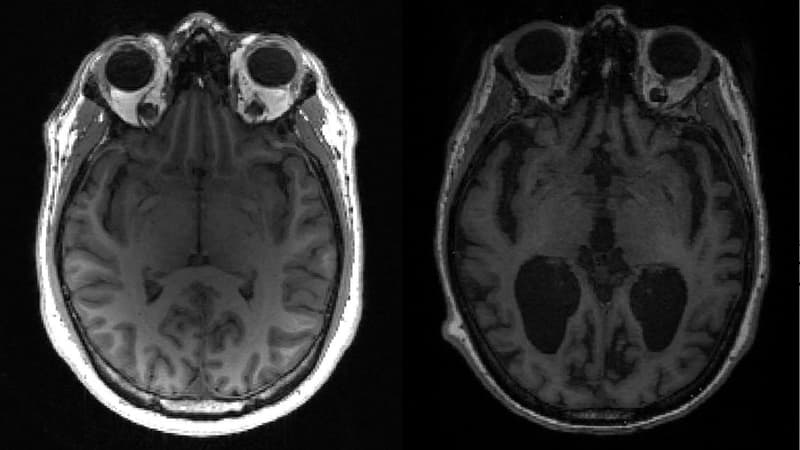Little by little, research allows you to discover weapons in the fight against Alzheimer’s disease. A team of CNRS researchers exhibits in an article published on May 12 in the scientific journal Nature Communications, the last promising track.
These French researchers have studied the effects of small antibodies, called Nanocorpes, capable of attacking the Tau protein, one of the managers of this neurodegenerative disorder. Alzheimer’s disease, which has no treatment to date, manifests itself in approximately two phases within the brain.
A31, Z70 and H3-2, new allies?
First, the appearance of a protein, the amyloid, which extends between the neurons. Then hyperphosphorization, or abnormal accumulation, of another protein, the Tau protein. It is this second mechanism that leads to the death of neurons, the moment when dementia manifests.
Therefore, it is in this second part, the harmful accumulation of the Tau protein, that the researchers discovered a new mode of action, which could prevent their harmful aggregation.
As CNRS explains in a video dedicated to this discovery, scientists have resorted “to solutions of immune systems for camelids, animals such as dromedaries or flames.”
So that? Due to its particularity, that of “producing nanocorpes, which binds to objectives such as any antibody, but that are much simpler and so small that they can act within the cells.”
Nanocorps called A31, Z70 and H3-2 have demonstrated their effectiveness during tests on mouse crops. Its advantage is due to its size, as explained by the Biologist Clément Danis:
“It is ten times smaller than a classic antibody. We can more easily work with them to modify them, adapt them to what we want to do in laboratories.”
However, as the CNRS points out, several clinical trials of anti-tau immunotherapy “were interrupted due to the lack of objective commitment or efficiency.”
Researchers highlight the need for support for basic research to develop biotherapy processes, treatments based on high elements.
If this discovery is promising, it will have to be reinforced by more research, even many years before a possible clinical application.
A treatment that acts in the first phase of the disease, the Leqembi, has just been authorized by the European authorities after a long regulatory trip. The effectiveness of it has been demonstrated to stop the disease, but its use has been limited with caution to limit the possible adverse effects.
Source: BFM TV


